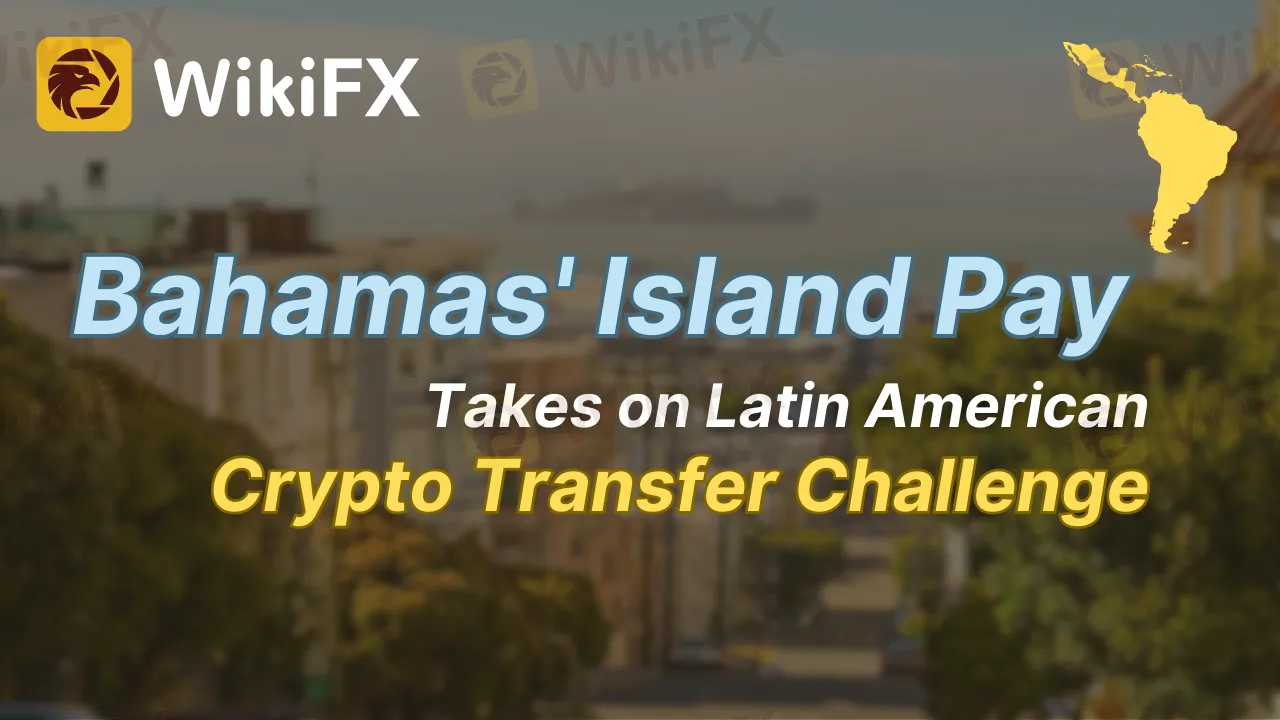简体中文
繁體中文
English
Pусский
日本語
ภาษาไทย
Tiếng Việt
Bahasa Indonesia
Español
हिन्दी
Filippiiniläinen
Français
Deutsch
Português
Türkçe
한국어
العربية
Bahamas' Island Pay Takes on Latin American Crypto Transfer Challenge
Abstract:Island Pay, a Bahamas-based fintech, launches a digital wallet, CiNKO, for easy crypto transfers in Latin America. The wallet aims to revolutionize money transfer methods in the region.

As we delve into the world of digital assets, cryptocurrency has long been seen as a potential panacea for money transfers in Latin America. The significance of this notion is magnified as migrants across the region send money home at record rates, despite the high costs and challenges associated with traditional remittance methods. Yet, even with the compelling promise of a financial solution, the reception of cryptocurrency in Latin America has been tepid, mainly due to the enduring skepticism over digital assets and the prevalent dominance of cash transactions.
Recently, Island Pay, a Bahamas-based fintech company, has made a bold entrance into this arena by launching a digital wallet in Latin America and the Caribbean. Named CiNKO, this new innovation utilizes Circles USDC stablecoin as its primary currency. Available in over 30 countries, CiNKO allows users to fund prepaid cards, transact with merchants, and make peer-to-peer payments, even without a bank account.
Richard Douglas, Island Pay's Chief Executive Officer, underlines the company's mission: “Our goal is to continuously look for ways to advance financial inclusion in the region and enhance financial experiences for both the unbanked and banked populations.”

However, Island Pay isn't alone in this journey to facilitate crypto transfers in Latin America. Several crypto wallets and cross-border payment systems already exist. Circle collaborates with traditional cash-transfer companies like MoneyGram International and Stellar, an open network for money storage and transfer. Additionally, Mexico-based Bitso has joined hands with Stellar to enable businesses in countries like Argentina, Colombia, and Mexico to transact in USDC. Meanwhile, Western Union has been escalating its digital payment platforms to stay competitive amid the growing influence of cryptocurrency.
The CiNKO wallet is part of a broader effort to integrate stablecoins and decentralized finance protocols in Latin America. According to Kash Razzaghi, Circles Chief Business Officer, the technology could potentially slash the cost of remittances by up to 80%. Unlike traditional financial intermediaries, which often take days for money transfers and charge an average cost of 6.2% to send $200, the CiNKO wallet aims to facilitate faster and cheaper transactions.

Yet, despite the benefits, challenges persist. Monica Talan, founder of CryptoConexion, explains that one of the main hurdles to crypto remittances is their ease of use. She points out that in most Latin American countries, there are limited places to spend Bitcoin or Ether.
“The biggest challenge is the off-ramp,” she says, “How do you turn tokens into your local currency, particularly if you dont have a bank account?”
Douglas, however, believes that USDC, which is US dollar-backed and trades one-to-one with the greenback, can mitigate the wild rate swings of traditional crypto. Additionally, with a growing ecosystem of merchants that accept USDC and the ability to transfer CiNKO's USDC balance onto a prepaid card, Douglas asserts that the cryptocurrency will be immediately usable.
Looking forward, CiNKO, which will be available for both Android and Apple iPhone users, plans to onboard 100,000 users — primarily in Central and South America — by next year. The company, which was one of the first to work with a central bank digital currency, the Bahamas Sand Dollar, remains focused on Latin America but has the capacity to expand this technology globally.
As cryptocurrency continues to evolve and more companies like Island Pay join the arena, the potential of digital assets in transforming the landscape of money transfers in Latin America seems ever more tangible. Time will tell if these efforts will help crypto become king in the region, bridging the financial gap for both the banked and unbanked populations.
To keep abreast of the latest news, install the WikiFX App on your mobile device. Click on this link to download the App:

Disclaimer:
The views in this article only represent the author's personal views, and do not constitute investment advice on this platform. This platform does not guarantee the accuracy, completeness and timeliness of the information in the article, and will not be liable for any loss caused by the use of or reliance on the information in the article.
Related broker
Read more

UK Sets Stage for Stablecoin Regulation and Staking Exemption
The United Kingdom is advancing its approach to cryptocurrency regulation with a specific focus on stablecoins and the potential exemption of staking services. British authorities are preparing new legislative measures to be implemented by December, aiming to bolster the nation’s appeal as a hub for digital asset innovation.

PayPal Expands PYUSD Transfers to Ethereum and Solana
PayPal's PYUSD stablecoin can now transfer across Ethereum and Solana, enhancing flexibility for users through a LayerZero cross-chain integration.

Crypto Scammer Pleads Guilty in $73 Million “Pig Butchering” Fraud
The scammer behind a $73 million pig butchering scheme has pleaded guilty to defrauding victims through fake cryptocurrency investments.

Influencer-Led $232M Crypto Scam Exposed in South Korea
South Korean authorities recently dismantled a large-scale cryptocurrency scam, allegedly orchestrated by a popular YouTuber referred to as Mr. A, which misled over 15,000 investors and amassed nearly 325.6 billion Korean won (approximately $232.7 million USD).
WikiFX Broker
Latest News
JUST Finance and UBX Launch Multi-Currency Stablecoin Exchange
XM Revamps Website with Sleek Design and App Focus
TradingView & Mexico’s Uni. Partnership, to Enhance Financial Education
Something You Need to Know About SogoTrade
Global Shift in Cryptocurrency Taxation: Italy and Denmark Chart New Paths
Webull Introduces 24/5 Overnight Trading to Extend U.S. Market Access
eToro Launches Global-Edge Smart Portfolio: A Balanced Approach to Growth and Stability
Darwinex advises traders to update MT4 & 5
Revolut X Expands Crypto Exchange Across Europe, Targeting Pro Traders
Crypto Scammer Pleads Guilty in $73 Million “Pig Butchering” Fraud
Currency Calculator


